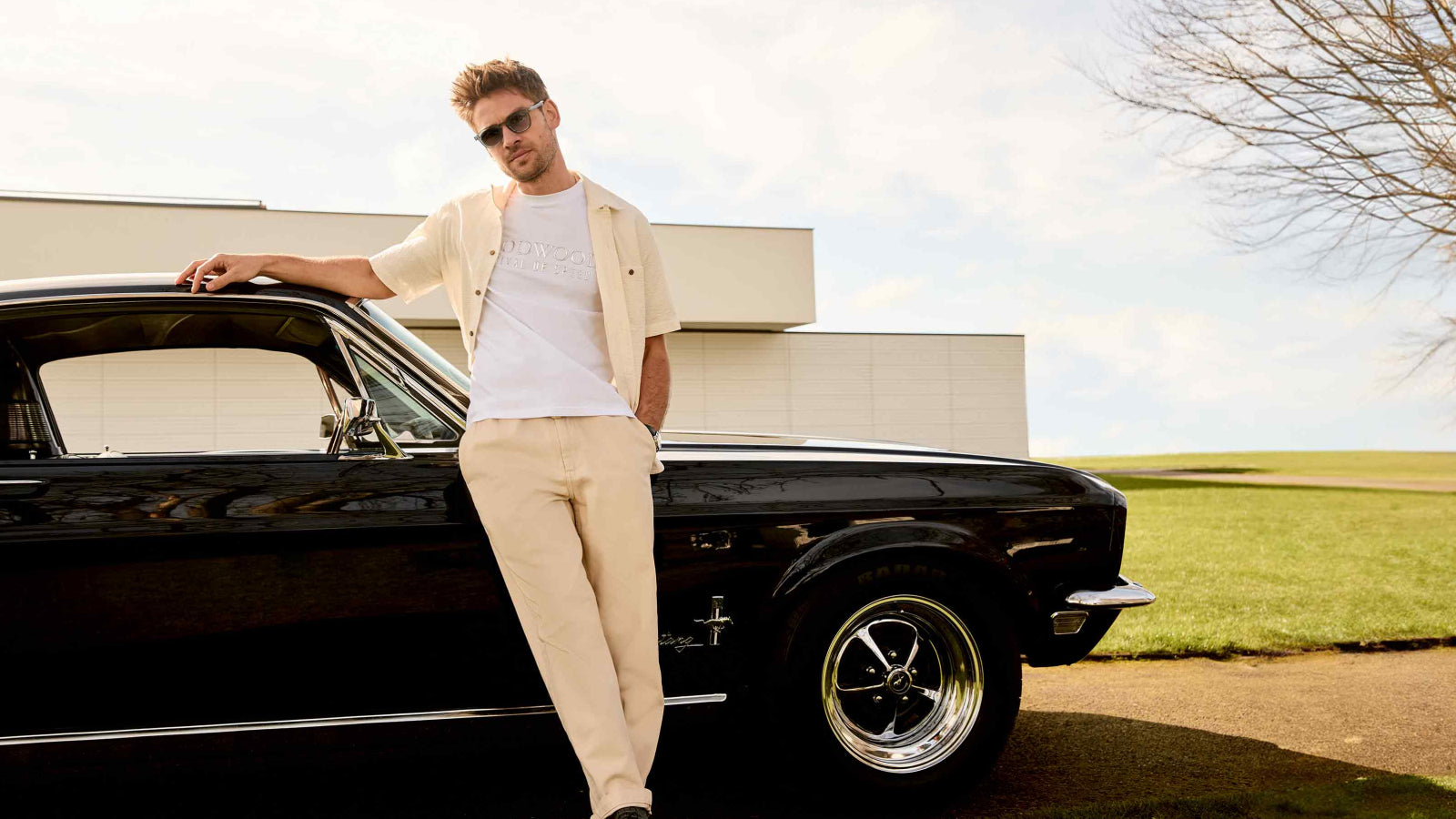Top 10... Dan Gurney racers
The late, very great Dan Gurney won in just about every discipline in which he competed between the mid-1950s and 1980, the year of his final professional race.

His exploits in Formula 1, IndyCar, the World Sportscar Championship, NASCAR, Can-Am, Trans-Am and the BTCC are legendary and give us a treasure trove of great cars from which to pick our favourites. These, then, are the 10 competition classics that spring to mind when we remember this unique racer, engineer and team boss as well as, of course, great friend to Goodwood.
Ferrari TR250
The front-engined, 3-litre V12 Testa Rossa gave Gurney his first big international win – in the Sebring 12 Hours in March 1959, alongside Chuck Daigh, Olivier Gendebien and Phil Hill. He also took it to fifth, with Tony Brooks, in the World Sportscar Championship-qualifying Tourist Trophy at Goodwood at the end of the year. The sight of him reunited with the car, and team-mate Brooks, during the Revival celebrations in 2012 was extraordinary.

Maserati Tipo 61
Gurney’s second World Sportscar Championship win came in the ‘birdcage’ Maserati with fellow superstar Stirling Moss at the Nürburgring Nordschleife 1000km enduro in May of 1960. At the time, Maestro Moss hailed Gurney’s performance in the Camoradi Racing Team machine, claiming they only defeated the works Porsche 718 RS 60s because of his efforts.

Porsche 804
Turning his back on a passionate and emotionally charged Scuderia Ferrari to race for British underdog BRM in 1960 was a mistake for Gurney, so the lure of German engineering excellence at Porsche for ’61 was too good to pass up. He made the 1.5-litre flat-four 718 go well, with three second places, but armed with the flat-eight 804 screamer for ’62 he won the French Grand Prix at Rouen for Porsche’s only F1 win as a constructor.
Ford Galaxie
Gurney loved big V8 muscle cars, evidenced by his exploits on the road courses of NASCAR’s Grand National series. His five wins all came at the switchback circuit of Riverside – in 1963 in the massive Holman-Moody Ford Fairlane, and on four more occasions at the California venue over the next five years aboard a Wood Brothers Galaxie. He was on course for victory in ’67, too, but for engine failure while leading in Bill Stroppe’s Mercury.

Brabham BT7
Fellow intuitive innovator and ace pedaller Jack Brabham, already a double World Champion for Cooper, wooed Gurney for 1963 and the American took two podium finishes from his first three outings in the BT7. In year two, still aboard the neat and 1.5-litre Climax V8-engined racer, Gurney beat the boss to become Brabham’s first winner – once again in the French GP at Rouen. If Gurney had stayed at Brabham beyond 1965, when it all came good, he would’ve probably have been World Champion…

Lola T70-Ford
The North American Can-Am series for massive Group 7 sports-prototypes suited Gurney’s brawn and bravery, not to mention his out-of-the-box engineering nous. He duly won his first race in the series, round two of season one at Bridgehampton in 1966, aboard a Lola T70 Spyder powered by a 5-litre Weslake-tuned Ford V8 (engine failure in practice had kept him out of the inaugural race at St Jovite). It would be Ford’s only victory in Can-Am’s glorious original incarnation.

Ford MkIV
The winning margin in the 1967 Le Mans 24 Hours for Gurney and fellow American all-rounder AJ Foyt was four laps. Their Shelby American Inc. Ford MkIV, a 7-litre V8-powered monster, dominated the race to secure both drivers’ only victory at La Sarthe. The post-race celebrations have become part of racing folklore thanks to Gurney spraying the crowd with champagne, thereby kick-starting a tradition still prevalent today.
Eagle T1G
Widely regarded by many as the most beautiful Grand Prix car of all-time, Gurney’s self-built-in-England Eagle T1G, with its sculpted, shark-like face and dark-blue livery, would give the boss a third opportunity to secure a maiden F1 win for a constructor when he took victory in the Belgian GP at Spa just a week after his Le Mans success for Ford. The Eagle’s sonorous 3-litre Weslake V12, also constructed in England, took its only F1 win that day in Belgium.
Eagle 68
Gurney’s eponymous Eagle Indycars enjoyed a record amount of success in America’s premier single-seater category, kick-started by Roger McCluskey in 1966 and finished off by Bobby Unser a decade later. Dan himself scored seven of those 49 wins, but never managed to triumph in the blue riband Indianapolis 500. His best result at The Brickyard was second place behind team-mate Bobby Unser in 1968, a feat he repeated in ’69.

McLaren M8D
Rocked by the death of founder Bruce McLaren in a testing crash at Goodwood in early June of 1970, the McLaren team needed a replacement for the opening Can-Am race of the season at Mosport less than a fortnight later. Gurney was their man and he took the ferocious M8D, sister car to the one in which Bruce had died when the rear bodywork came loose at high speed, to an emotional victory. He repeated the feat two weeks later at St Jovite.
Photography courtesy of LAT Images and The GP Library
Dan Gurney
Top 10
Famous Five...































































